News in Brief
-
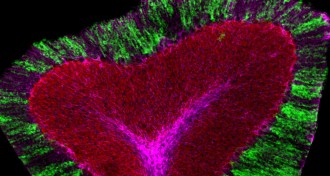 Neuroscience
NeuroscienceStress hormone kicks brain cells into gear
Norepinephrine, a stress hormone, wakes up cells called astroglia, possibly shifting brain into vigilant state.
-
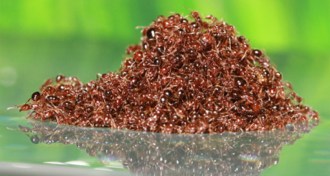 Animals
AnimalsIn emergencies, fire ants get lots of grips to form rafts
First look inside fire ant architecture shows how lots of leg grips assemble rafts, bridges and balls.
By Susan Milius -
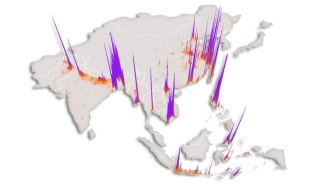 Life
LifeAvian flu could strike Asian poultry markets outside China
H7N9 influenza has a higher chance of spreading to humans in urban areas close to water, researchers predict.
-
 Health & Medicine
Health & MedicineUlcer microbe changes quickly to avoid immune attack
During the initial weeks of infection, Helicobacter pylori, the bacterium that causes stomach ulcers, mutates at a high rate, apparently to evade the body’s defenses.
By Nathan Seppa -
 Environment
EnvironmentE-cigarettes may inflame lungs as much as cigarettes do
Acute lung impacts of e-cigarettes and tobacco cigarettes are nearly identical, new study finds.
By Janet Raloff -
 Physics
PhysicsEnergy-efficient laser works at room temperature
A room-temperature polariton laser, which requires little electricity, could improve electronics and medical devices.
By Andrew Grant -
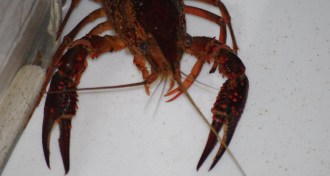 Neuroscience
NeuroscienceCrayfish get anxious, too
After receiving a shock, crayfish act anxious, avoiding brightly lit areas.
-
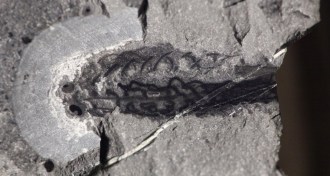 Paleontology
PaleontologyAncient fish may have set stage for jaws
A fish called Metaspriggina walcotti, which lived roughly 500 million years ago, had body parts that may have later evolved into jaws.
-
 Astronomy
AstronomySupermassive black hole kills monster galaxy
A supermassive black hole appears to have shut down star formation in an ancient, massive galaxy.
-
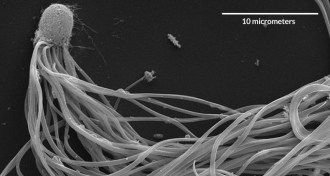 Animals
AnimalsAnt sperm swim as a team
The desert ant has sperm that swim in bundles for extra speed, perhaps increasing their likelihood of fertilizing an egg.
-
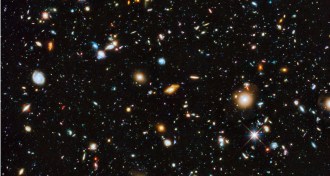 Astronomy
AstronomyHubble space telescope spies teenage galaxies
New Hubble telescope images show ultraviolet radiation from stars born during the universe’s adolescent phase.
-
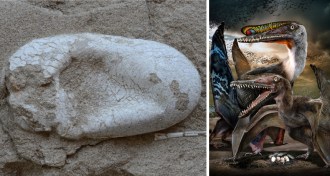 Paleontology
PaleontologyPreserved pterosaur eggs hint at reptile’s social life
The first 3-D pterosaur eggs, which were found in China, suggest that the flying reptiles laid eggs together.
By Meghan Rosen